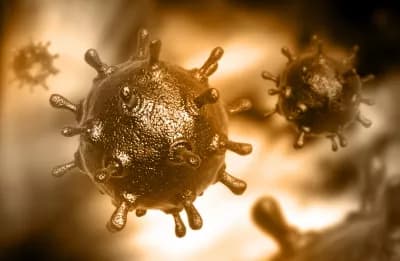
Achieving U.S. National HIV/AIDS Strategy Targets Would Save Lives, Be Cost Effective
An analysis led by a team of Massachusetts General Hospital (MGH) investigators shows that achieving the treatment targets of the National HIV/AIDS Strategy (NHAS) by 2020 not only would prevent hundreds of thousands of new infections and deaths but also would demonstrate excellent value. Their study published in the Journal of Infectious Diseases, finds that meeting the NHAS goals -- 90 percent of HIV infected individuals know their diagnosis, 80 percent of whom achieve virologic suppression through antiretroviral drug treatment (ART) -- would save more than two million years of life over the next 20 years.
"If nearly everyone with HIV in the U.S. were in care, on medication and virally suppressed, we would stop the epidemic in its tracks," says Rochelle P. Walensky, MD, MPH, chief of the MGH Division of Infectious Diseases and senior author of the report. "Achieving the NHAS goals would bring us one step closer to that goal."
Released by the White House in 2015, the NHAS was designed to bring U.S. HIV/AIDS policies in line with those of the Joint United Nations Programme on HIV/AIDS -- which calls for diagnosing 90 percent of HIV-infected persons worldwide, linking 90 percent of identified cases to ART, and achieving virologic suppression among 90 percent of ART recipients. Achieving the NHAS targets would achieve successful virologic suppression in 72 percent of infected individuals, compared with current estimates of 49 percent.
The current study was designed to identify the expected return on investment for the programs required to achieve NHAS goals, as well as highlight the significant toll in terms of illness and deaths if those goals were not achieved. Since NHAS also emphasizes reducing treatment disparities in communities at high risk for HIV infection, the MGH-led team conducted a separate analysis on the impact of NHAS among black men who have sex with men (MSM), the group with the highest risk of contracting HIV.
Using a mathematical model for assessing the cost effectiveness of preventing HIV/AIDS, the investigators compared the forecasted results of continuing the current pace of HIV diagnosis, linkage to and retention in treatment, and viral suppression to those of achieving NHAS goals -- projecting both clinical benefits and costs over a 20-year period. While continuing at the current pace would result in 750,000 deaths from HIV/AIDS over 20 years; achieving NHAS would reduce total deaths to 551,000, preventing almost 200,000 deaths. Among black MSM, NHAS would cut the number of deaths from 110,000 to 65,000.
While meeting NHAS targets would cost $645.7 billion over the next 20 years, compared with $525.3 billion under the current pace, the number of lives saved would lead to a cost effectiveness ratio of $68,900 per quality-adjusted life year (QALY) -- well within the U.S. cost-effectiveness standard of $100,000/QALY. Among the black MSM population, achieving the NHAS strategy demonstrated even greater value, with a ratio of $38,300/QALY. The investigators note that since almost 75 percent of costs are attributable to ART, reducing the price of ART drugs could lead to even greater cost effectiveness.
"Achieving NHAS won't be cheap, but it would be affordable and cost effective," says co-author Kenneth Freedberg, MD, MSc, MGH Infectious Diseases. "It would make good public health and economic sense to first focus NHAS implementation on black MSM, since they are at considerably higher risk than the general population. Overall, fully implementing NHAS could avert more than 200,000 deaths and prevent more than 250,000 HIV infections over the next 20 years."
Walensky adds, "Achieving NHAS goals is entirely feasible. One of the biggest barriers is retaining patients in care, but our projections demonstrate that increasing two-year retention rates from 78 percent to 89 percent would be enough to reach these goals. This study is only the latest contribution to the large evidence base demonstrating conclusively that we have it in our clinical and economic power to bring the HIV/AIDS epidemic in the U.S. to a halt. Now is the time to do so."
Materials provided by Massachusetts General Hospital. Note: Content may be edited for style and length.
Disclaimer: DoveMed is not responsible for the accuracy of the adapted version of news releases posted to DoveMed by contributing universities and institutions.
References:
Ethan D Borre, Emily P Hyle, A David Paltiel, Anne M Neilan, Paul E Sax, Kenneth A Freedberg, Milton C Weinstein, Rochelle P Walensky. (2017). The Clinical and Economic Impact of Attaining National HIV/AIDS Strategy Treatment Targets in the United States. The Journal of Infectious Diseases. DOI: 10.1093/infdis/jix349
Related Articles
Test Your Knowledge
Asked by users
Related Centers
Related Specialties
Related Physicians
Related Procedures
Related Resources
Join DoveHubs
and connect with fellow professionals

0 Comments
Please log in to post a comment.